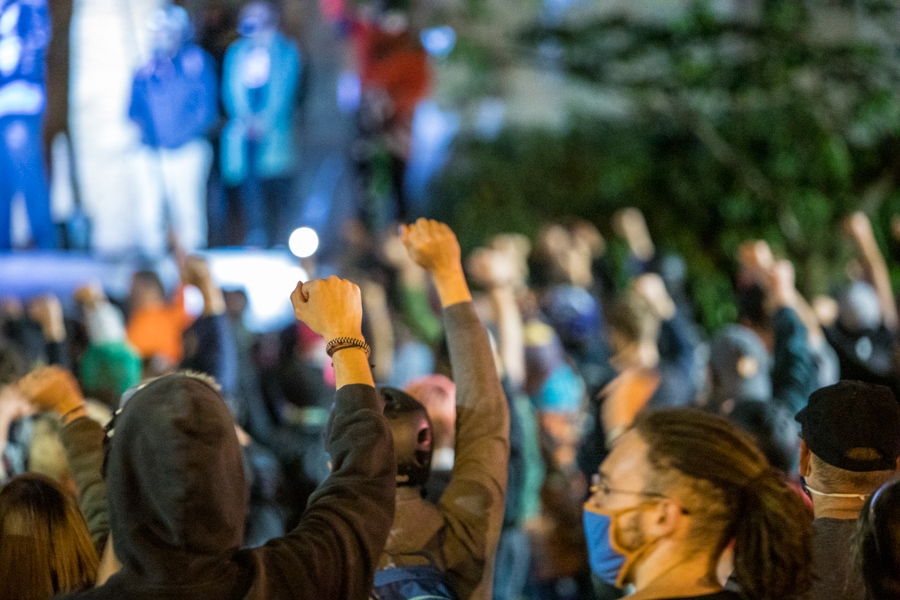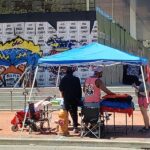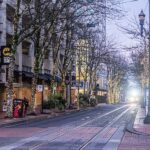Portland’s Black Lives Matter demonstrators want to reclaim a cultural and economic area of their own.
Much of the media attention of the Black Lives Matter protests centered on the nightly violent conflict between demonstrators and police at the federal courthouse in downtown Portland.
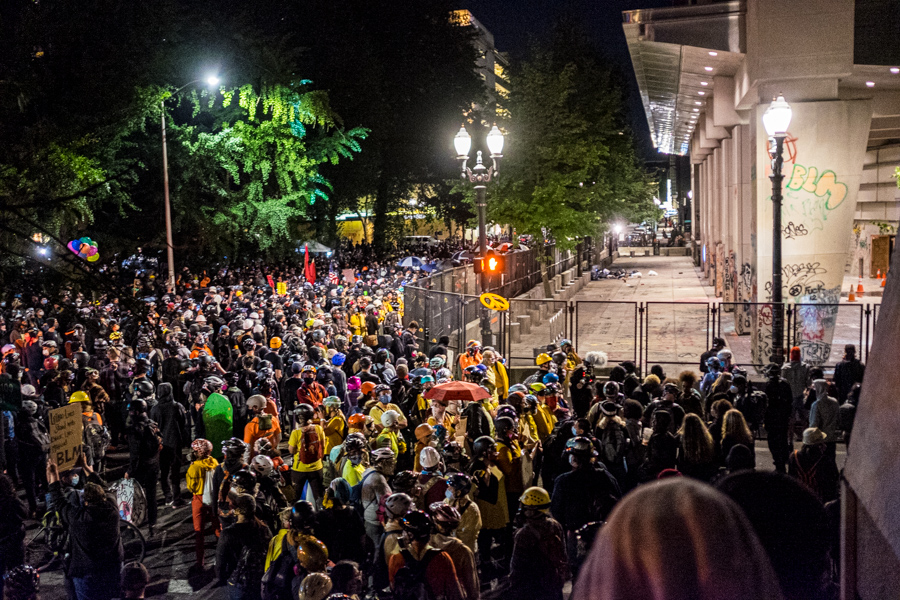 A large crowd gathers in front of the federal couthouse on July 23 after the conclusion of a BLM rally next door. Photo: Jsaon E. Kaplan
A large crowd gathers in front of the federal couthouse on July 23 after the conclusion of a BLM rally next door. Photo: Jsaon E. Kaplan
Less attention has been paid to the Black Lives Matter rallies that take place every evening in front of the Justice Center, Portland’s police headquarters and county jail.
The crowds are larger for these gatherings and the speeches are focused on social reform.
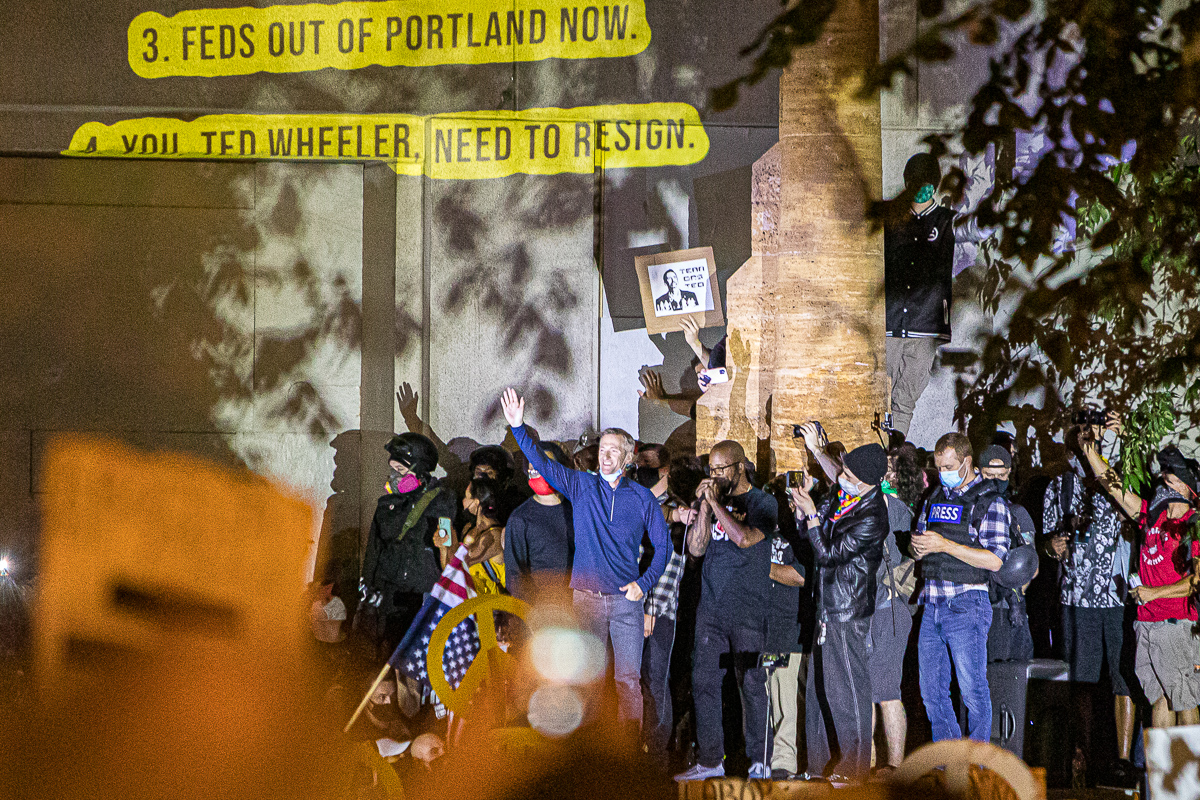 Portland Mayor Ted Wheeler addresses the BLM protest at the Jusitice Center under a projected list of demands that includes calling for his resignation. Photo: Jason E Kaplan
Portland Mayor Ted Wheeler addresses the BLM protest at the Jusitice Center under a projected list of demands that includes calling for his resignation. Photo: Jason E Kaplan
On July 23, a couple of the speakers mentioned their desire for a new cultural and business district for the Black community. They mentioned the Jade District, a neighborhood near Southeast 82nd Ave. and Division St., which has become a hub of Asian-American business and culture.
In 2011 the City of Portland chose the Jade District for an economic development program, called the Neighborhood Prosperity Network, which channels funds toward supporting social equity-based community development at the neighborhood level.
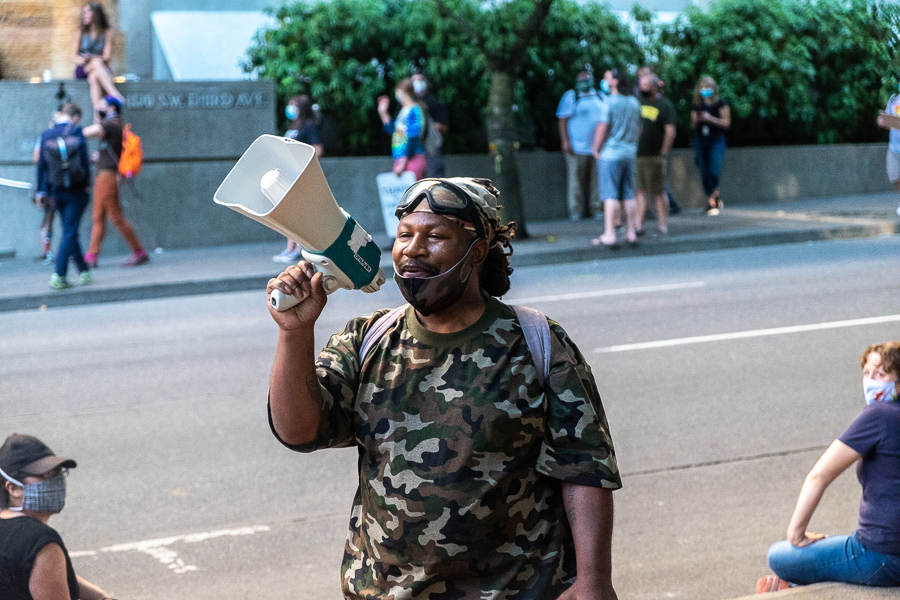 Jason Broddie, a Black Lives Matter protester, gathers people for the night Black Lives Matter rally in front of the Justice Center in downtown Portland. Photo: Jason E. Kaplan
Jason Broddie, a Black Lives Matter protester, gathers people for the night Black Lives Matter rally in front of the Justice Center in downtown Portland. Photo: Jason E. Kaplan
“Why can’t there be an Africa District?” a Black Lives Matter protester asked. Another said she wanted inner Northeast and North Portland neighborhoods to be returned to the Black community.
Historically, these areas were populated by Black communities and were a center of arts, small businesses and schools.
The neighborhoods were bulldozed decades ago to make way for Interstate 5 and the Rose Quarter, a 30-acre sports and entertainment district.
The idea of an Africa District dovetails with the goals of Albina Vision Trust, an organization which aims to redevelop parts of close-in Northeast Portland into a community that can welcome back families displaced by the construction of Interstate 5 corridor and gentrification.
The need for the Black community to have a sense of place where they can thrive economically and culturally is often left out of the conversation about racial justice.
Even Black Lives Matter protesters say it is premature to talk about economic development goals.
“It’s too early for that,” says Jason Broddie, a Black Lives Matter protester who serves as a sort of MC for the rallies.
But he feels that the demonstrators have made progress. The fact that they are permitted to use the Justice Center steps for the nightly rallies is seen as a positive step. “The way the police have stopped messing with us here, that’s beautiful,” he says.
Broddie says that there is a long list of changes that he would like to see to improve racial and economic justice. Ultimately, he would like to focus more on wealth redistribution, better access to health care and education for all.
“Black lives have to matter before you build something up or they’ll just tear it down,” he says.
Those goals may start to gain traction as Black Lives Matter protesters seek ways to move on from the nightly demonstrations and the withdrawal of federal agents from the protests.

